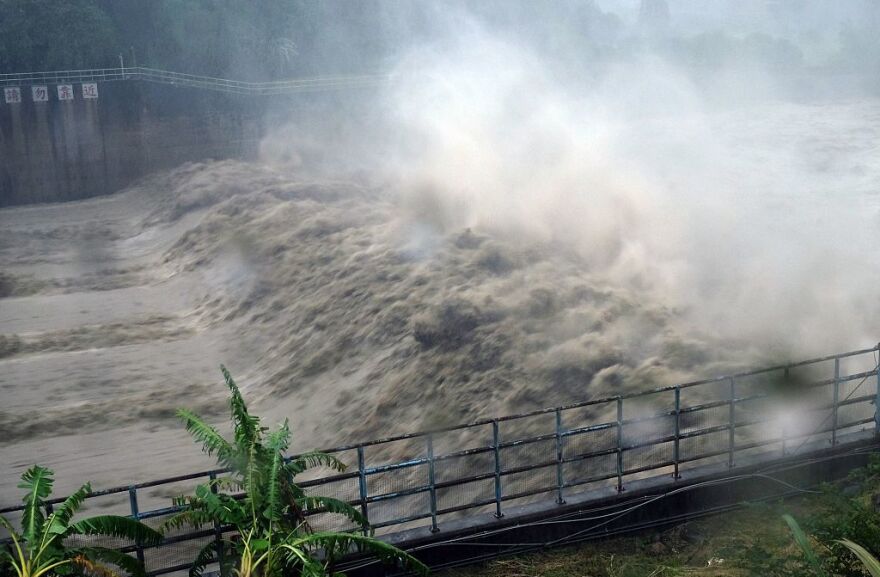In the past two days, Typhoon Megi has pounded Taiwan and the coast of southeast China and forced tens of thousands of people to evacuate amid rising floodwaters.
At least four people died in Taiwan, as the storm blasted across the island en route to China, NPR's Anthony Kuhn tells our Newscast unit. In mainland China, at least one person was killed when several buildings collapsed in Quanzhou, in Fujian province.
"Knee-high water flooded the streets of the provincial capital Fuzhou" in Fujian province, Anthony says, and "authorities evacuated around 120,000 people from the storm's path." As Reuters reports, "the province's 31,700 fishing boats have been recalled to port to avoid the high winds."

Photos from Fujian province show people in bright orange life jackets, trying to wade through brown floodwaters that reached as high as their chests.
In the wake of the typhoon, "a landslide slammed into a village in China's eastern Zhejiang province on Wednesday, swallowing up dozens of houses and leaving 27 people missing," Reuters reports.

In Taiwan, the Taipei Times says that more than 622 people were injured as a result of the storm, which made landfall on the island on Tuesday. The newspaper says that "more than 4,000 people [were] in shelters" and "a total of 2,402 households were still without water supply." Thousands more people faced power and telephone outages. Additionally, the Times says, "234 domestic flights and 58 international flights were cancelled yesterday."

Typhoon Megi was 310 miles in diameter at its height, Anthony reports. The Joint Typhoon Warning Center says that "the system is expected to rapidly decay as it drags westward across rugged terrain then dissipate."
Such incidents are not uncommon in this area. Reuters notes that "large swathes of China have been inundated with rain and battered by typhoons over the past few months, killing hundreds of people."
The wire service adds that "critics say local governments, especially in the frequently hit coastal provinces in China's east, misallocate funding or fail to spend enough of defences and other problems caused by heavy rain."
Copyright 2020 NPR. To see more, visit https://www.npr.org.





